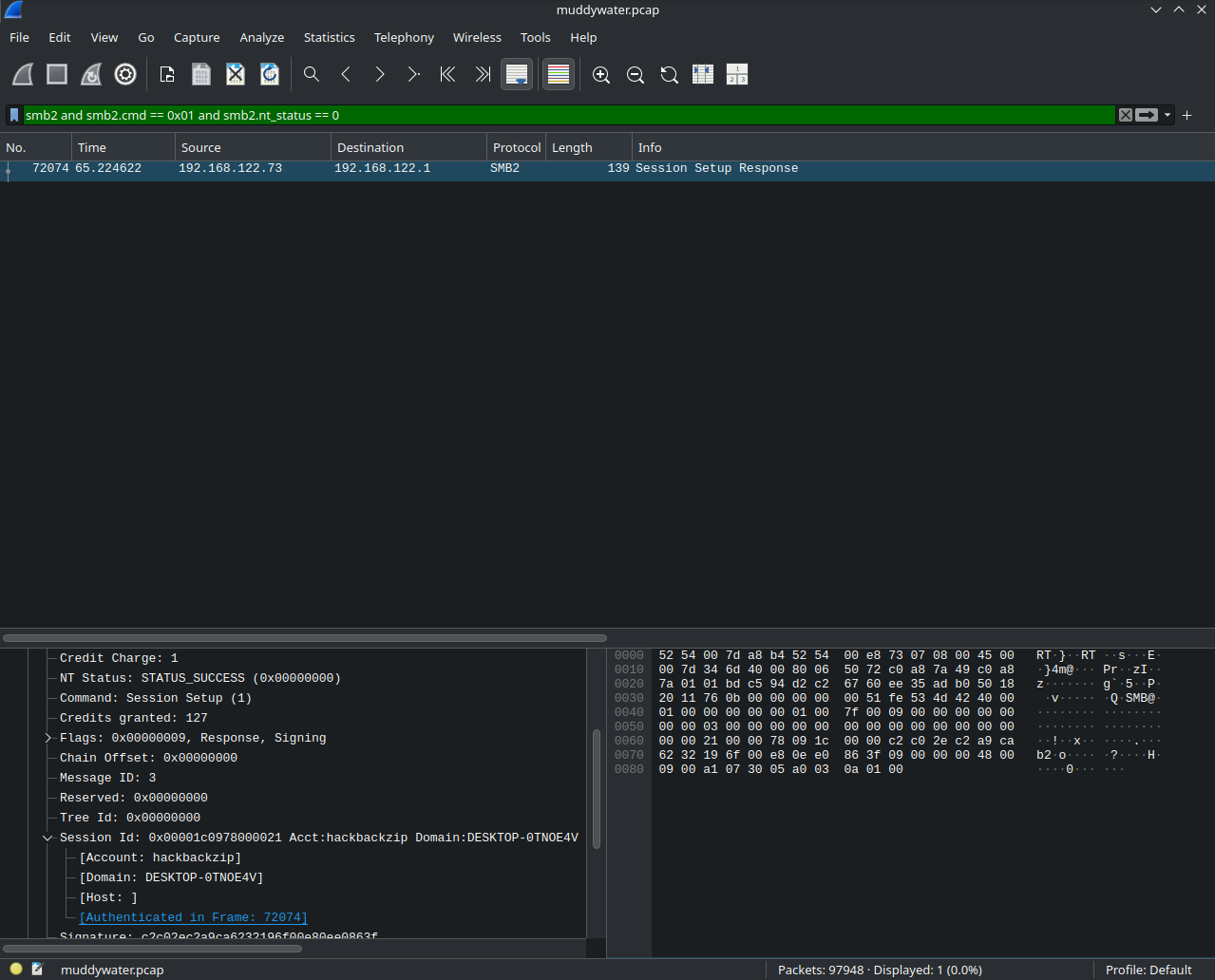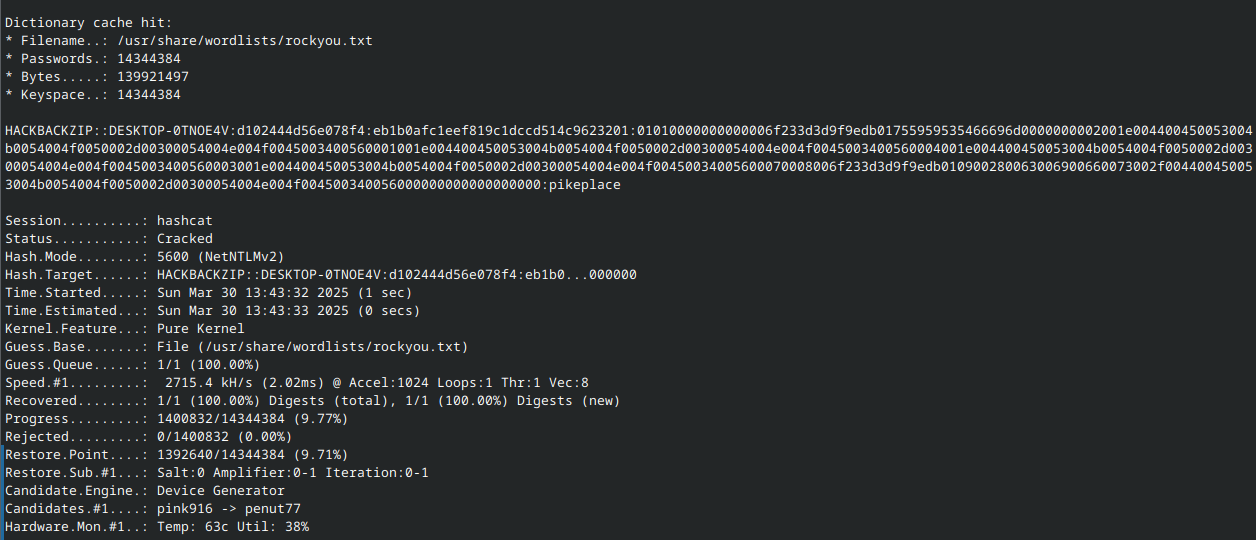Problem

Solution
Taking a look at the PCAP, there appear to be many SMB2 packets. Knowing nothing about SMB2 or NTLM, I clicked around until I noticed the “NTLM Secure Service Provider” field.
To find the username and subsequently the password, we must first identify the successful login. Reviewing Wireshark’s SMB2 docs, I found that users are authenticated using the SessionSetup command (opcode 0x01). As the attacker is bruteforcing a login, the PCAP will be flooded with these, so we must identify a successful attempt of the command. The NT_Status field with value 0x00000000 indicates successful operations. Thus, to find the successful login, we combine the two conditions to create the following Wireshark filter: smb2.cmd == 0x01 and smb2.nt_status == 0. Applying the filter yields only a single result:

To uncover the whole story, let’s follow the TCP stream:

Consulting this post, I discovered that NTLMv2 hashes can be cracked using Hashcat mode 5600 given the following information:
- User name
- Domain name
- NTLM server challenge
- NTLM proof string
- NTLMv2 response
Packets 72065 and 72069 contain this information - 72065 providing the server challenge, and 72069 providing the rest. According to this post and Hashcat’s example hashes, the hash format is as follows:
<user name>::<domain name>:<server challenge>:<proof string>:<response (minus the proof string prefix)>
Note
The NTLMv2 response will contain the NTLM proof string as a prefix, remove this
Given the information we have found already, the hash can be constructed like so:
hackbackzip::DESKTOP-0TNOE4V:d102444d56e078f4:eb1b0afc1eef819c1dccd514c9623201:01010000000000006f233d3d9f9edb01755959535466696d0000000002001e004400450053004b0054004f0050002d00300054004e004f0045003400560001001e004400450053004b0054004f0050002d00300054004e004f0045003400560004001e004400450053004b0054004f0050002d00300054004e004f0045003400560003001e004400450053004b0054004f0050002d00300054004e004f00450034005600070008006f233d3d9f9edb010900280063006900660073002f004400450053004b0054004f0050002d00300054004e004f004500340056000000000000000000
I stored this in a file named ntlmv2_hash.txt, then ran hashcat -m 5600 ntlmv2_hash.txt /usr/share/wordlists/rockyou.txt:
